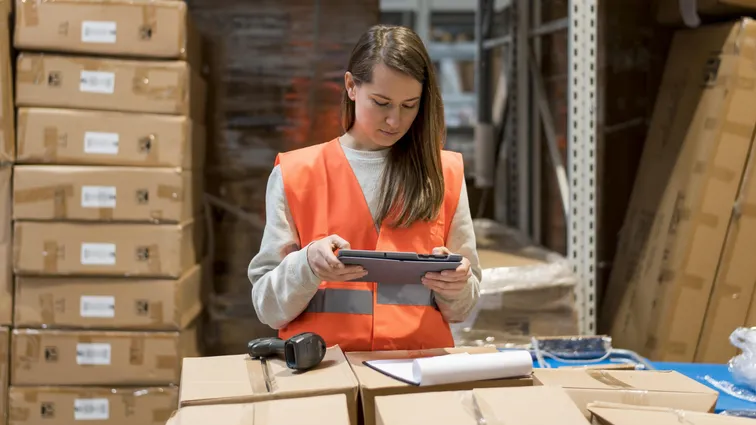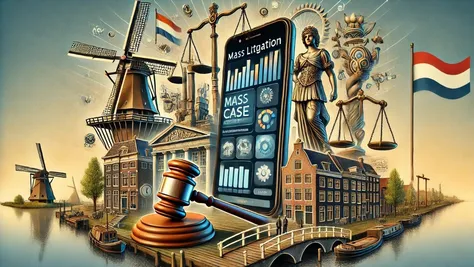In just a few days, on 13 December 2024, the General Product Safety Regulation (GPSR) will come into effect, introducing new product safety requirements and obligations. It will impact a vast number of businesses, including manufacturers, importers, and distributors, as well as providers of e-shops and online marketplaces. What exactly does this new regulation entail, and how should businesses prepare for it?
The purpose of Regulation (EU) 2023/988 of the European Parliament and of the Council of 10 May 2023, on general product safety, known as the GPSR - General Product Safety Regulation (“Regulation”),[1] is to ensure that all products sold on the European market—whether in physical stores or online—are safe, thereby further enhancing consumer protection.
What products does the Regulation apply to?
The Regulation, with certain exceptions, applies to all products intended for consumers or those likely to be used by consumers, even if not primarily intended for them.
Excluded from the Regulation are in particular food, medicinal products, feed, living plants and animals, plant protection products, certain types of aircraft, and antiques.
Those subject to the Regulation must ensure that only safe products are placed on the market. Below are the key obligations for individual actors:
Obligations of manufacturers
Under the Regulation, a manufacturer is a person who manufactures products or markets them under that person’s name or trademark. Since manufacturers have the greatest influence on product safety, they have the most obligations. Before placing their products on the market, they must carry out an internal risk analysis, draw up technical documentation, label the products, and include instructions and safety documentation. The Regulation also outlines procedures they must follow if they identify a safety risk. Additionally, they must enable consumers to file complaints (e.g., via a web form or email) and take corrective measures if necessary.
Obligations of importers
Importers, who import products to the European market from third countries, must verify that manufacturers have fulfilled their obligations. Additionally, importers are required to place their name or trademark along with their postal and electronic address on the products. They must also keep a copy of the technical documentation, ensure appropriate storage and transport conditions, and cooperate with the relevant surveillance authorities and manufacturers. The Regulation imposes similar obligations on importers as on manufacturers where they consider or have reason to believe that a product they have placed on the market is a dangerous product.
Obligations of distributors
Under the Regulation, distributor is any person who sells products to end consumers (i.e., makes products available on the market but is neither manufacturer or importers). Distributors must verify that upstream supply chain actors, i.e., manufacturers and importers, have fulfilled their obligations under the Regulation, particularly ensuring that products are properly labelled and accompanied by the necessary documentation.
If a distributor believes that a product it has placed on the market is a dangerous product, improperly labelled, or not accompanied by the required documentation, it must promptly inform the manufacturer, the importer, and the relevant surveillance authorities and ensure that appropriate corrective measures are taken.
What obligations does the Regulation impose on providers of e-shops and online marketplaces?
The Regulation also lays down specific obligations for distance sales of products, particularly online. Traders selling their products online, including providers of e-shops, must indicate the following information for each product offered:
- designation of the manufacturer and its postal and electronic address (where the manufacturer is not established in the Union, the name, postal and electronic address of the responsible person);
- picture, type and any identification details of the product (e.g. batch or serial number);
- warning or safety information, if relevant to the product’s use.
The Regulation also imposes obligations on providers of online marketplaces. They must designate a single point of contact for communication with surveillance authorities regarding product safety, have internal processes for product safety in place, and cooperate with the relevant surveillance authorities and other entities subject to the Regulation. Additionally, they must ensure that their online interface is organized in a way that allows traders to provide the required product information.
And what if a product is dangerous?
If those subject to the Regulation discover that their products are dangerous or have caused an accident, they must pass this information along the supply chain and inform the relevant surveillance authorities. The exchange of information on product safety will take place through the modernized Safety Gate system (formerly RAPEX).
The Regulation also requires informing consumers about the recall of dangerous products. The entities concerned can use for example contact details from product registrations or loyalty programs for this purpose. If consumers are informed in writing, a template provided by the Commission must be used.[2]
Is the Czech legislation ready for the Regulation?
The Regulation per se is directly applicable; however, to ensure its practical implementation, changes will also be made to the Czech legislation. Specifically, Act No. 102/2001 Sb., on General Product Safety, will be repealed, as the Regulation will comprehensively address the issue and replace the Act in this regard.
Additionally, a new General Product Safety Act will be adopted, which will define the relevant national surveillance authorities, the national network for the operation of the Safety Gate system, and the offences and penalties for non-compliance with the Regulation. Although the new Czech General Product Safety Act has not yet been adopted, the bill[3] has already been approved by the Parliament and is expected to be signed by the President in the coming days.
Conclusion
The Regulation comprehensively addresses product safety issues and introduces new obligations for all supply chain actors. In addition to general obligations, the Regulation also sets out specific requirements for distance sales, including special obligations for providers of online marketplaces. Given its broad scope, the Regulation will affect a significant number of entities, with the proposed bill providing for fines of up to CZK 50 million.
If you are unsure whether the Regulation applies to you, what obligations it entails, or have any other related questions, please feel free to contact us, and we will be happy to advise you.
- [1] – The text of the Regulation is available here: https://eur-lex.europa.eu/legal-content/EN/TXT/?uri=celex%3A32023R0988.
- [2] – Commission Implementing Regulation (EU) 2024/1435 containing the template for a recall notice is available here: https://eur-lex.europa.eu/legal-content/CS/TXT/?uri=CELEX%3A32024R1435.
- [3] – The bill and information on the status of the legislative process is available here: https://www.psp.cz/sqw/historie.sqw?o=9&t=767.









